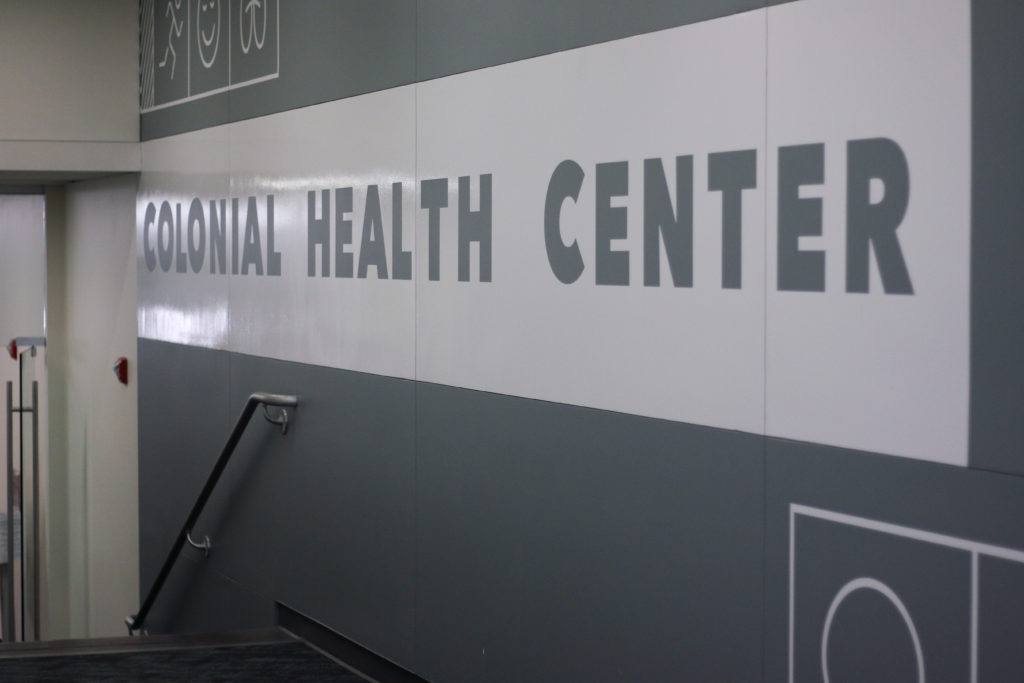Almost a year after the #MeToo movement exploded on social media, the Colonial Health Center is offering group sessions on the topic.
The two new sessions, offered by Mental Health Services, are titled “#MeToo – You Are Not Alone” and will be offered Sept. 17 and 24 at 12 p.m. The sessions, created to provide support for survivors of sexual violence, will allow up to eight students per session to share personal experiences and find ways to maintain emotional wellness, they said.
The sessions are part of the CHC’s weekly “Sociocultural Dialogue” sessions, which cover topics relating to “the intersections of your identity and your overall well-being,” according to the CHC website. Other session topics include “Loving the Body You’re In: Critiquing Body Ideals” and “Men’s Emotional Wellness,” the website states.
Gillian Berry, the associate director of Mental Health Services, said officials decided to host the #MeToo sessions after hearing feedback from students, counselors and in-person and online evaluations.
“It is anticipated that the skills obtained in relation to critical thinking, understanding diverse perspectives and promoting self-awareness can be applied immediately by students serving them well beyond their time at GW,” she said.
She said officials will continue the sessions if students remain interested. She said officials update session topics “based on student interest, need and response.”
“The group’s goal is to create an environment where challenging conversations can occur,” she said.
Sexual harassment experts said the discussion sections could provide a place for survivors to talk about their experiences and serve as a starting point for their healing process.
Jenna Ben-Yehuda, an adjunct professor of international affairs who studies sexual harassment in national security, said the new discussions can make students feel more comfortable at GW because they can share similar experiences with their peers in an open environment.
“In these sessions, the victim can start the process of working through what their experience means to them, with guided support from a professional, because we do see in research that the legacies of the trauma can go on for many years to come,” she said.
She added that the new sessions in the CHC provide an opportunity for students to start healing their own trauma.
“One of the elements we see in research is that victims of harassment experiences can be isolated, and coming together with those who have similar experiences I think can certainly help people feel like they are not alone in their experience,” she said.
Carly Mee, the interim executive director of SurvJustice, a nonprofit based in D.C. that advocates for survivors of sexual violence, said the discussions can be a way to speak about topics like sexual harassment that are “very relevant right now.”
Dozens of sexual harassment and violence allegations have come to light over the past few years, including high-profile individuals like former film producer Harvey Weinstein and former actor Bill Cosby, whose honorary degree from GW was rescinded following the accusations in 2016.
But Mee said allowing this discussion for every student on campus could be concerning because not all students have the proper knowledge about sexual misconduct and the #MeToo movement. Any student can show up to the sessions without registering, according to the CHC website.
“There are people who don’t support the #MeToo movement and who don’t understand the basis for that,” Mee said. “And while there is definitely a space on campus for competing opinions, I worry about putting people in that space without any preparation of knowledge about the #MeToo movement, who will be attending and what will be OK to discuss.”





